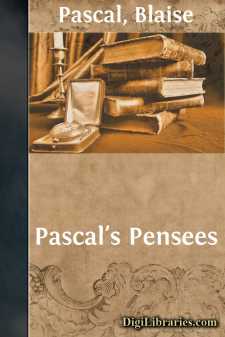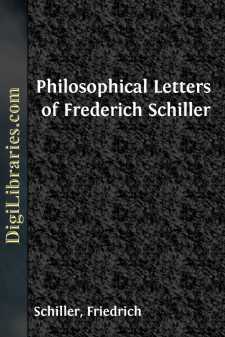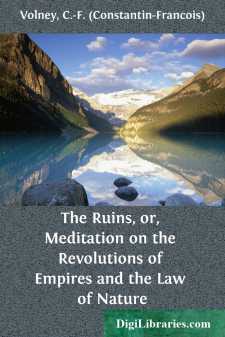Philosophy
- Aesthetics 11
- Eastern 1
- Ethics & Moral Philosophy 3
- General 30
- Hindu 2
- History & Surveys 3
- Logic 1
- Metaphysics 3
- Political 1
- Religious 8
- Social 3
- Taoist 1
Philosophy Books
Sort by:
by:
Thomas Common
I. THE THREE METAMORPHOSES. Three metamorphoses of the spirit do I designate to you: how the spirit becometh a camel, the camel a lion, and the lion at last a child. Many heavy things are there for the spirit, the strong load-bearing spirit in which reverence dwelleth: for the heavy and the heaviest longeth its strength. What is heavy? so asketh the load-bearing spirit; then kneeleth it down like the...
more...
by:
Plotinus
It may seem wonderful that language, which is the only method of conveying our conceptions, should, at the same time, be an hindrance to our advancement in philosophy; but the wonder ceases when we consider, that it is seldom studied as the vehicle of truth, but is too frequently esteemed for its own sake, independent of its connection with things. This observation is remarkably verified in the Greek...
more...
PROLOGUE What I am anxious to attempt in this anticipatory summary of the contents of this book is a simple estimate of its final conclusions, in such a form as shall eliminate all technical terms and reduce the matter to a plain statement, intelligible as far as such a thing can be made intelligible, to the apprehension of such persons as have not had the luck, or the ill-luck, of a plunge into the...
more...
by:
Blaise Pascal
INTRODUCTION It might seem that about Blaise Pascal, and about the two works on which his fame is founded, everything that there is to say had been said. The details of his life are as fully known as we can expect to know them; his mathematical and physical discoveries have been treated many times; his religious sentiment and his theological views have been discussed again and again; and his prose...
more...
PERCY BYSSHE SHELLEY, AS A PHILOSOPHER AND REFORMER. A PAPER READ BEFORE THE NEW YORK LIBERAL CLUB, ON FRIDAY, AUGUST 6TH, 1875. "Let us see the Truth, whatever that may be."—SHELLEY, 1822. Mr. Vice-President and Members of the Liberal Club: "The Blood of the Martyr is the Seed of the Church." Persecution ever fails in accomplishing its desired ends, and as a rule lays the...
more...
THE Editor begs to call attention to some of the difficulties he had to encounter in preparing this edition of the complete works of Friedrich Nietzsche. Not being English himself, he had to rely upon the help of collaborators, who were somewhat slow in coming forward. They were also few in number; for, in addition to an exact knowledge of the German language, there was also required sympathy and a...
more...
The reason passes, like the heart, through certain epochs and transitions, but its development is not so often portrayed. Men seem to have been satisfied with unfolding the passions in their extremes, their aberration, and their results, without considering how closely they are bound up with the intellectual constitution of the individual. Degeneracy in morals roots in a one-sided and wavering...
more...
by:
John Armstrong
INTRODUCTION The essays on taste taken from the work of John Gilbert Cooper and John Armstrong and reprinted in this issue are of interest and value to the student of the eighteenth century because they typify the shifting attitudes toward taste held by most mid-century poets and critics. Cooper, who accepts the Shaftesbury-Hutchesonian thesis of the internal sense, emphasizes the personal, ecstatic...
more...
PREFACE. In preparing the present volume, the writer has been actuated by a conscientious desire to deepen and vivify our faith in the Christian system of truth, by showing that it does not rest solely on a special class of facts, but upon all the facts of nature and humanity; that its authority does not repose alone on the peculiar and supernatural events which transpired in Palestine, but also on the...
more...
PARIS TRANSLATION, First published in this Country by Dixon and Sickels.INVOCATION.Hail, solitary ruins! holy sepulchres, and silent walls! you I invoke; to you I address my prayer. While your aspect averts, with secret terror, the vulgar regard, it excites in my heart the charm of delicious sentiments—sublime contemplations. What useful lessons! what affecting and profound reflections you suggest to...
more...











